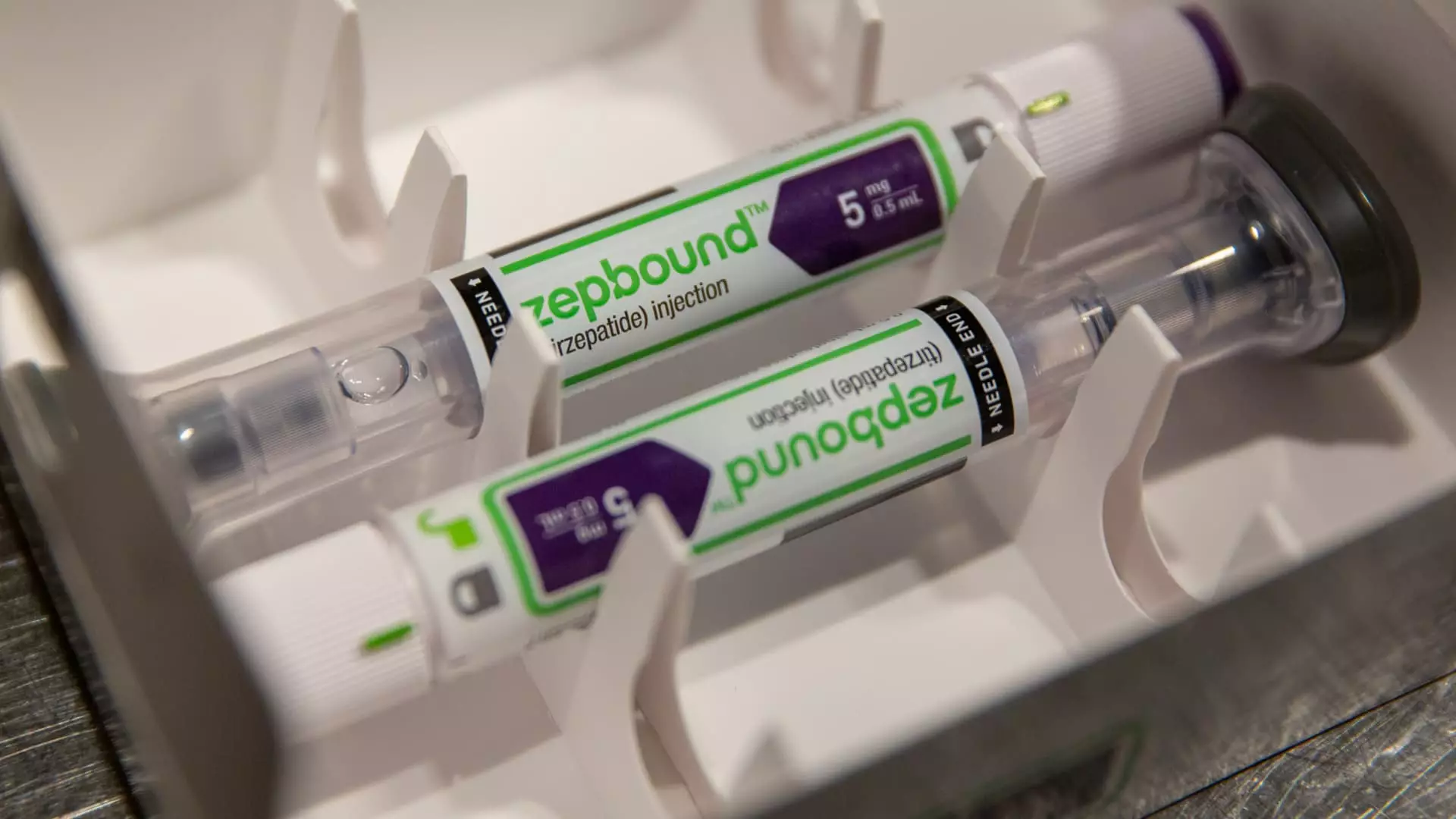Eli Lilly’s latest weight loss drug, Zepbound, has shown promising results in patients suffering from a common type of heart failure and obesity. The late-stage trial data released by the company indicates that Zepbound may offer additional health benefits beyond weight loss and blood sugar regulation. This has the potential to broaden insurance coverage for such treatments and provide new hope for patients with heart failure.
The findings from the phase three trial reveal that patients who took Zepbound were 38% less likely to be hospitalized or die due to heart complications compared to those who received a placebo. Additionally, they were less likely to require an increase in their heart failure medication. Zepbound also demonstrated significant improvements in heart failure symptoms and physical limitations, offering patients a better quality of life.
The trial followed over 700 patients with heart failure and obesity, specifically with preserved ejection fraction (HFpEF). This condition refers to the heart’s inability to pump enough blood to meet the body’s needs, leading to symptoms such as fatigue, shortness of breath, and reduced exercise capacity. Eli Lilly estimates that nearly half of all heart failure cases are attributed to HFpEF, with a significant number of patients also dealing with obesity.
The safety data on Zepbound was found to be consistent with previous trials, with the most common side effects being gastrointestinal in nature, such as nausea and diarrhea. These side effects were generally mild to moderate in severity, indicating that Zepbound is relatively well-tolerated by patients. Eli Lilly plans to present the data at medical meetings and submit it to peer-reviewed journals for further analysis.
Eli Lilly faces competition from Novo Nordisk, a major player in the GLP-1 drug market. Novo Nordisk has already submitted an application for the use of its weight loss drug, Wegovy, in treating patients with HFpEF. The FDA has also granted approval for Wegovy to reduce the risk of serious heart complications, putting Novo Nordisk ahead in the race. Both companies are also exploring the use of their drugs in patients with chronic kidney disease and fatty liver disease.
GLP-1 drugs, including Zepbound and Wegovy, work by mimicking gut hormones to suppress appetite and regulate blood sugar levels. Zepbound targets both the GLP-1 and GIP hormone receptors, offering a unique approach to treating obesity and related conditions. This dual targeting mechanism sets Zepbound apart from its competitors and may present new opportunities for improving patient outcomes.
The results of Eli Lilly’s trial on Zepbound represent a significant advancement in the treatment of heart failure patients with obesity. The potential health benefits beyond weight loss make Zepbound a promising option for those struggling with HFpEF. As further research and regulatory approvals are obtained, Zepbound could become a valuable addition to the treatment landscape for heart failure and obesity.


Leave a Reply